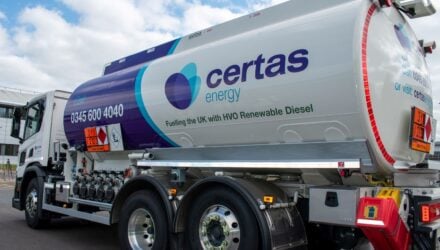
Steve Beattie, Head of Business Sales at Volvo Car UK
By 2050, the UK is targeted to reduce its CO2 emissions by 80% compared with 1990 levels. Volvo believes that every business in the UK could be taking active measures to reduce their carbon footprint and asks fleet operators to consider implementing some essential steps.
Embrace Electrification
One way for fleet managers to reduce the impact of their fleet is to include a range of electrified vehicles on their options lists. Volvo has committed to a comprehensive electrification programme, with the aim of 50% of its global car sales being pure electric by 2025. This year will see the firm’s wide range of plug-in hybrids joined by 48-volt mild hybrid variants of petrol and diesel models, with its first pure electric car set for launch in the coming months.
Don’t ask the earth of business drivers
If there’s a sure-fire way to push a fleet’s carbon emissions up, it’s asking company car drivers to cover unreasonable distances in a single day. Setting unreasonable schedules is bad for fuel economy, road safety and employee well-being. The message is simple: take care of employees when they’re on the road, and they’ll take better care of the planet – not to mention themselves and other road users.
Use the right technology and innovation for fleet cars
Making use of the latest automotive technology aside from electrification can also improve a fleet’s eco credentials. For example, features such as adaptive cruise control, which helps drivers maintain a constant distance from the car in front, improve fuel economy and reduce speeding. By choosing vehicles with technology designed to aid the driver and enhance safety, it’s possible to improve fuel economy and reduce the impact on the environment.
Invest in driver training
Businesses can go further when it comes to looking after their employees on the road by offering them training in safe and eco-friendly driving. Driver training can pay all sorts of dividends for fleet operators. By encouraging safer driving, businesses can save between 10% and 20% in fuel consumption. This is because drivers who plan their journeys properly, concentrate more and anticipate the actions of others, are less prone to harsh braking and acceleration.
The “grey” fleet should not be overlooked
There are an estimated 14 million “grey” fleet drivers on the UK’s roads who use their own vehicles for work and claim back business mileage. The British Vehicle Rental & Leasing Association (BVRLA) reports that the average grey fleet car is around eight years old and produces more than twice the emissions of a TfL Bus. With this in mind, companies can make major reductions in their carbon footprint by analysing their grey fleet travel and eliminating unnecessary trips.
High-mileage grey fleet travellers should be given a modern, cleaner, company car, while employees making fewer journeys should be encouraged to use public transport, car rental or corporate car-sharing schemes.


















